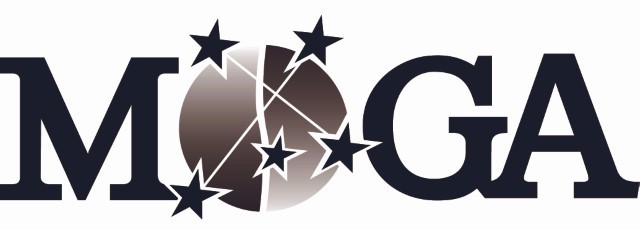Medical Oncology Group of Australia
Recommendations from Medical Oncology Group of Australia (MOGA) to improve and develop the profession of medical oncology and the management of cancer nationwide. MOGA is the peak representative body for medical oncologists in Australia. The Association works closely with Government, health organisations, affiliated international associations and societies, industry, consumer advocacy groups and learned colleges throughout Australia to improve and develop the profession of medical oncology and the management of cancer nationwide.

3.
Avoid tests (biomarkers and imaging) for recurrent cancer in previously treated asymptomatic patients unless there is evidence that early detection of recurrence can improve survival or quality of life; including avoiding surveillance testing (biomarkers) or imaging (PET, CT and radionuclide bone scans) for asymptomatic individuals who have been treated for breast cancer with curative intent.
Avoid tests (biomarkers and imaging) for recurrent cancer in previously treated asymptomatic patients unless there is evidence that early detection of recurrence can improve survival or quality of life; including avoiding surveillance testing (biomarkers) or imaging (PET, CT and radionuclide bone scans) for asymptomatic individuals who have been treated for breast cancer with curative intent.
Some biomarker and imaging tests are effective in staging cancers. For instance, flourodeoxyglucose (FDG) PETs are most effective at staging NSCLC (non-small-cell lung cancer), restaging HL (Hodgkin lymphoma), staging/restaging colorectal cancer, and detection of SPN (solitary pulmonary nodule). However, the clinical impacts of these tests for surveillance of asymptomatic patients are unclear, particularly in cases where early detection of recurrence is unlikely to improve clinical outcomes.
Moreover, despite more recent evidence that PET-CT scanning and serial measurement of serum tumour markers can be helpful for some asymptomatic patients by leading to appropriate treatment modifications, there are alternatives to these intensive approaches for detecting recurrence (e.g. surveillance mammography and clinical breast examination in the case of breast cancer).
Supporting evidence
- Champion L, Brain E, Giraudet AL, et al. Breast cancer recurrence diagnosis suspected on tumor marker rising. Cancer 2011; 117: 1621–29.
- Di Gioia D, Stieber P, Schmidt GP, et al. Early detection of metastatic disease in asymptomatic breast cancer patients with whole-body imaging and defined tumour marker increase. Br J Cancer. 2015;112(5):809–18.
- Facey K, Bradbury I, Laking G, Payne E. Overview of the clinical effectiveness of positron emission tomography imaging in selected cancers. Health Technol Assess. 2007;11(44).
- Moschetti I, Cinquini M, Lambertini M, et al. Follow-up strategies for women treated for early breast cancer. Cochrane Database Syst Rev. 2016;(5):CD001768.
- Patel K, Hadar N, Lee J, et al. The Lack of Evidence for PET or PET-CT Surveillance of Patients with Treated Lymphoma, Colorectal Cancer, and Head and Neck Cancer: A Systematic Review. Journal of Nuclear Medicine: official publication, Society of Nuclear Medicine. 2013;54(9):1518–27.
An Evolve working group of MOGA members was established and compiled an initial list of 79 potentially low-value tests, treatments, and other clinical practices in medical oncology, drawing on the results of a desktop review and clinical experience. Anonymised email feedback on the list was collated and analysed and the initial list was reduced to 64 items. These were divided into seven categories, ranging from ‘Diagnosis and staging’ to ‘Therapy’. An online survey allowed members of the working group to anonymously choose the top six or the top three from each category (depending on the number in the category). From this, a list of the top-28 items was then presented to the MOGA Executive Committee. Following anonymised email feedback, this list was further reduced to 24 items. Each member of the Committee was invited to nominate their top-12 of these. Responses were consolidated and a list of 11 items compiled, which served as the basis of a final online survey, to which the entire MOGA membership was invited to respond. Respondents assigned a score of 1 to 5 for each item based on their level of agreement with each. Scores for each item were averaged and the top-5 list produced.
Related recommendations
- 1 Avoid cytotoxic chemotherapy in patients with advanced cancer who are unlikely to benefit from chemotherapy (ECOG performance status 3 or 4) and continue to focus on symptom relief and palliative care.
- 2 Do not perform routine cancer screening, or surveillance for a new primary cancer, in the majority of patients with metastatic disease.
-
3
Avoid tests (biomarkers and imaging) for recurrent cancer in previously treated asymptomatic patients unless there is evidence that early detection of recurrence can improve survival or quality of life; including avoiding surveillance testing (biomarkers) or imaging (PET, CT and radionuclide bone scans) for asymptomatic individuals who have been treated for breast cancer with curative intent.
- 4 Do not perform serum tumour marker tests except to evaluate or monitor a cancer known to produce these markers.
- 5 Do not routinely offer pharmacological venous thromboembolism (VTE) prophylaxis to ambulatory outpatients who are undergoing oncological treatment.